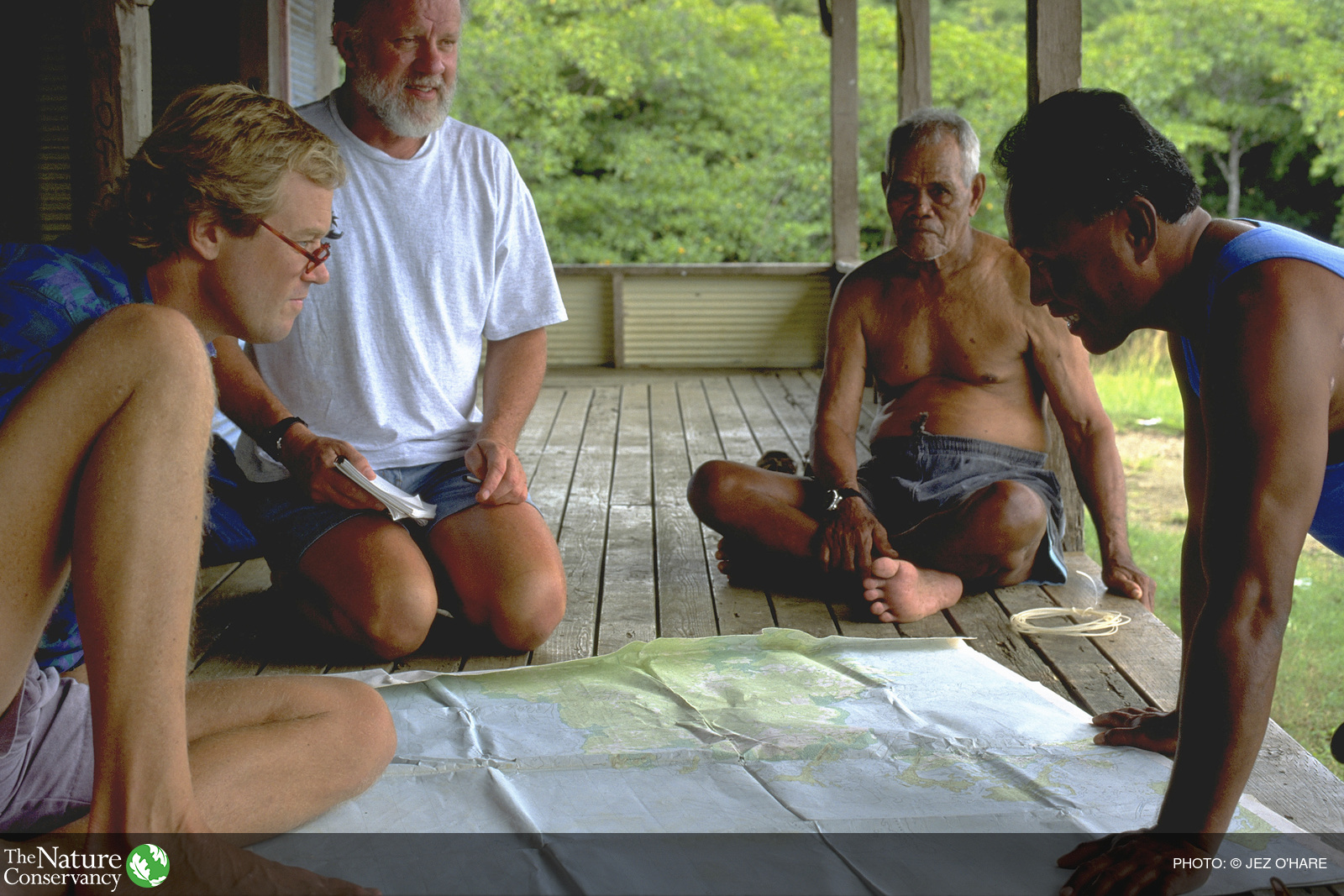Learn from the History of the Place
Over the past century, colonialism, war, industrialization, and globalization had profound social and economic impacts on island cultures throughout the Pacific. These historical events and subsequent interventions by governments and other organizations continue to shape local perspectives throughout the region. As a result, initiatives driven by outsiders are always suspect and laden with mistrust, whereas community-driven action is viewed as more transparent, trustworthy, and beneficial to the people and the environment. Understanding how events from the past continue to shape the perceptions of people in the communities where you work is essential.
“In the 1980s, conservation was dead in the water in the Pacific because it was largely driven by ex-patriots following the western model of establishing national parks, putting a firewall between the park and the people. In the early 1990s, the first community-based conservation projects were showing early success, and they quickly spread across the region. ”
Each place has its own history. Valuable lessons can be learned, and disasters avoided, by engaging local partners and listening to local stories. Perhaps another organization was there before you, but their attempts did not go so well. Now there is baggage to deal with and biases to overcome. The Arnavon Islands Marine Conservation Area in the Solomon Islands (see Scaling Up, Solomon Islands) is one such story with a dramatic lesson about how the best conservation intentions can literally go up in flames because international conservationists failed to include the local community in their process. These kinds of stories don’t just show what is possible. They offer lessons and alternative approaches for what may seem impossible until you take the time to engage the community and understand and address their concerns.
“Inexperienced conservationists often think they are exempt from local norms. This privileged thinking signals disregard for local culture and can be perceived as a form of post-colonial superiority or condescension. The simple practice of bringing food and drink and spending time in the village to share stories and celebrate eating together is hugely underestimated.”




